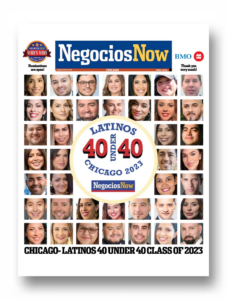President Donald Trump’s decision to end the program that blocked deportation of Dreamers – the young undocumented immigrants brought into the United States by their parents – drew an instant rebuke and fierce opposition from a broad swath of American business leaders who represent a diverse range of companies. Tech and communications companies have been particularly active. Many companies like Facebook, Microsoft, Verizon and AT&T all expressed their support, but Sprint and T-Mobile have been curiously silent.
Why aren’t these two major wireless carriers standing with our Dreamers, many of whom are their customers — or even their employees?
Recipients of former President Barack Obama’s Deferred Action for Childhood Arrivals program are commonly called “Dreamers,” but they’re not just dreamers, they’re doers. The roughly 780,000 young people who signed up for DACA are overwhelmingly either in school or the workforce. Almost three-quarters of the top 25 Fortune 500 companies in America have DACA recipients on their payrolls.
The ambitious young men and women in DACA are undoubtedly contributing to our economy and living the American dream, with 5 percent staring their own business, 16 percent buying a home, and 65 percent purchasing a vehicle. If they were to be deported, annual U.S. gross domestic product would take a $460 billion hit and Social Security and Medicare tax revenues would decrease by $24.6 billion.
All those statistics were referenced in an open letter to Trump and congressional leaders that was signed by AT&T and an incredibly long list of major U.S. businesses. Verizon, like many other tech companies, released an individual statement in support of DACA.
But nothing from Sprint and T-Mobile. Why are they not willing to speak out on such an important issue? Bolivian-born Sprint CEO Marcelo Claure is an immigrant himself. He didn’t learn English until the ninth grade and got his start in the wireless business delivering phones to clients from the trunk of his car. As the leader of the one of America’s top wireless providers, he is an inspiration to Latinos.
Then there’s T-Mobile CEO John Legere. To say the “un-carrier’s” un-CEO-like style is unique is an understatement. He’s unfiltered, loves attention, and has no problem getting into public feuds, including one with Trump after complaining about noise outside a Trump hotel window while living the life of luxury. But when it comes to DACA, Legere and his boisterous tweets have been nowhere to be found. Maybe his T-Mobile phone couldn’t find a signal.
It’s no secret that the tech industry in general, in spite of the flashy graphics and rhetoric you can find on most companies’ websites (including T-Mobile and Sprint), still lacks the diversity that characterizes the American workforce. Google’s problems with diversity made news again not long ago, and employment and leadership roles for African-Americans and Hispanics at Silicon Valley’s tech giants also lag far behind opportunities for whites and Asians.
But the lack of response to Trump’s DACA cancellation from T-Mobile and Sprint is likely all about preparing for a long-rumored merger at the expense of standing up for the value of Dreamers. It might indicate a willingness on the part of their leaders to put diversity to the side in favor of rebuilding shaky relationships with a President and an Administration who would ultimately decide the fate of the very lucrative merger should the two telecom giants move forward.
On- and off-again rumors about a potential merger have been swirling for a while. In essence, T-Mobile and Sprint leaders could be keeping a low profile on DACA because they don’t want to risk stirring up trouble with this president before their plans are a fait accompli. Not exactly examples in morale courage. Remember this in mind the next time you’re shopping for a new mobile phone plan.
This is probably the same reason some speculate a T-Mobile spokesperson said “We’re not talking about this issue right now,” in response to a question about Trump’s travel ban, another immigration policy many tech companies opposed.
Whether T-Mobile and Sprint decide to get on board or not, renewing protections for Dreamers should still be one of our nation’s top priorities. Of all the issues under the umbrella of immigration reform, none have more widespread, bipartisan support than allowing Dreamers to stay in the country they have always called home. DACA was a temporary fix; it is time for Congress to step up and create a permanent legislative solution for this hardworking, law-abiding group of young Americans.
This is not merely a policy debate for our group, our friends and our allies. Indeed, many Dreamers are members of our organization — and potentially the next generation of tech entrepreneurs. We wonder why Companies like T-Mobile and Sprint have done nothing to speak up against the move by the Trump administration to end DACA.
For the sake of our nation, @TechLatino urges leaders in Washington to stand up for the Dreamers.
Jose A. Marquez is the national president, CEO, and founder of @techlatinoThe National Association of Latinos in Information Sciences and Technology, a National nonprofit organization that advocates on state and federal issues related to the role of Latinos in the technology sector. Follow us on twitter: @techlatino @lista1










